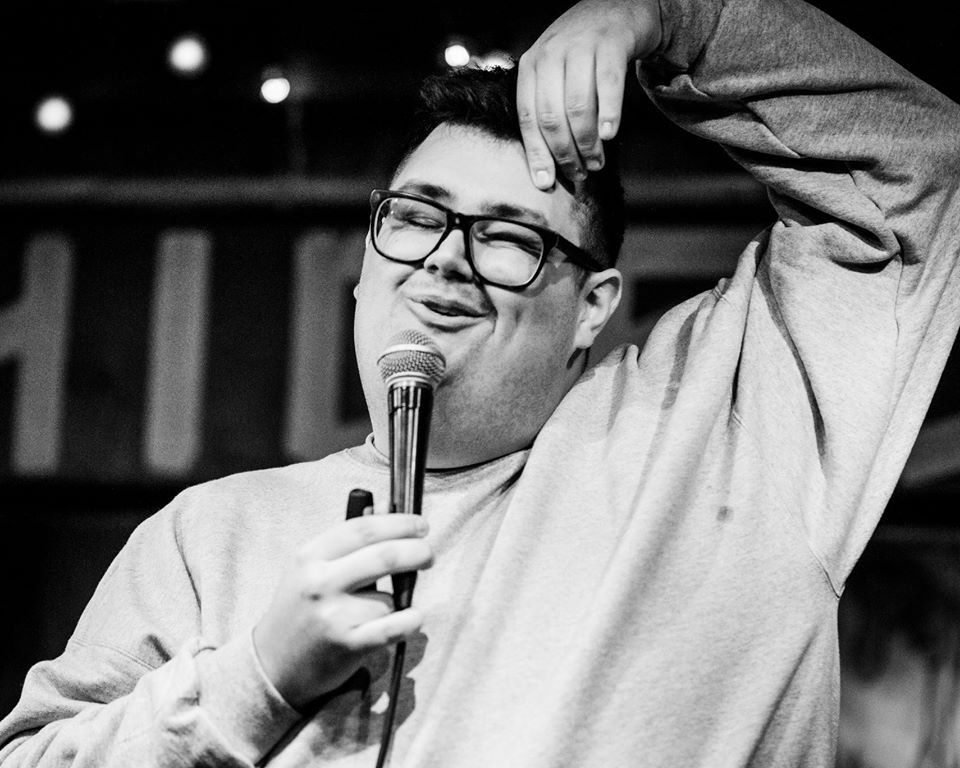Comedian Caleb Hearon, 25, has a knack for bridging the gap between the relatable and the absurd, especially on Twitter. His video (embedded below) depicting a one-sided FaceTime conversation went viral in early December, with nearly 67,000 retweets, and he has since launched an ongoing tweet series about a rollercoaster ride of a date using the same conceit.
Hearon, who moved to Chicago from Missouri in 2017, is starting to perform nationally, taking his stand-up showcase "At What Cost?" to New York and Los Angeles with cohost Holmes Holmes. He’s also landing television roles in shows like Work in Progress and Fargo. In the meantime, you can catch him every Friday at iO Chicago, where he produces a weekly variety show, or cohosting "At What Cost?" every month at Lincoln Lodge.
When did you realize you were funny and what did you do about it?
Growing up in the closet in Missouri, there’s so much pretending. You’re constantly interrogating your point of view when you’re closeted in a rural, conservative area. It formed a drive to examine how I feel about situations versus what I’m going to say.
When I was a kid, we had this babysitter who served us spaghetti with Thousand Island dressing. She thought it was the meal of the century, and I just sat there at the table and thinking, “Am I alone right now? This is crazy to me!” I remember retelling it to my mom and my cousins, and they just laughed hysterically. I thought, “Eating the Thousand Island noodles is kind of funny, but it’s something in the way I’m saying this.”
I realized that in everything I do, it’ll either go well and be fun, or go badly and be material. Which is diseased — that’s a sick way to think! But it’s better than having a bad day and doing nothing about it.
Your recent videos of one-sided FaceTime conversations have been getting a lot of traction on Twitter. Where do you most tend to eavesdrop on strangers?
If I’m in an Uber Pool or a Lyft share or whatever, I’ll always have on headphones but almost never have music on. I want people to think I’m checked out but I’m constantly listening. I also love working at coffee shops — it’s one of the only ways I can write, because if I get stuck I’ll just sit and listen.
It seems like minimally produced comedy videos filmed on iPhones, like your Twitter series, have been getting a lot of online attention recently. What drew you to this style?
I think for comedians, in general, the DIY sense of it is that we’re tired of waiting. We don’t want to move to Chicago and wait for iO to put us on a team; we don’t want to wait for Second City to put us on a tour company. These are incredible opportunities and the people who do them are insanely talented, but it’s a long process and you have to pay a lot of dues to get those things. The DIY Twitter and Instagram stuff is all about knowing that people can see you right now. And I don’t have to be perfect! It doesn’t have to be amazing. This doesn’t have to be my HBO special.
pov: you’re a close friend venting to me about a situation where you were entirely in the wrong pic.twitter.com/jGVesg228V
— ᴄᴀʟᴇʙ ʜᴇᴀʀᴏɴ (@calebsaysthings) December 2, 2019
How do you deal with Twitter trolls?
I find it very interesting how quickly I want to be like, “You can’t be mean to me!” And, well, of course they can! They shouldn’t, but I begged for the attention! It’s just so interesting to throw yourself into a pit of snakes and be like, “If anyone bites me, I’m pissed.”
It seems like you can’t have a conversation about comedy without addressing cancel culture. Thoughts?
I think that, like most things, there’s so much more nuance to it than anyone allows. The thing with cancel culture is that people are more sensitive now, and that comes from a really positive place: We’re listening to people’s feelings. Sometimes it plays out in unhelpful ways — the idea that it’s ruining comedy is stupid. But I think people can go too far.
Some people don’t understand that my stuff is satire. People online, especially on Twitter, are sometimes earnest to the point that it’s crippling. I’m kidding around! It’s a joke website.



